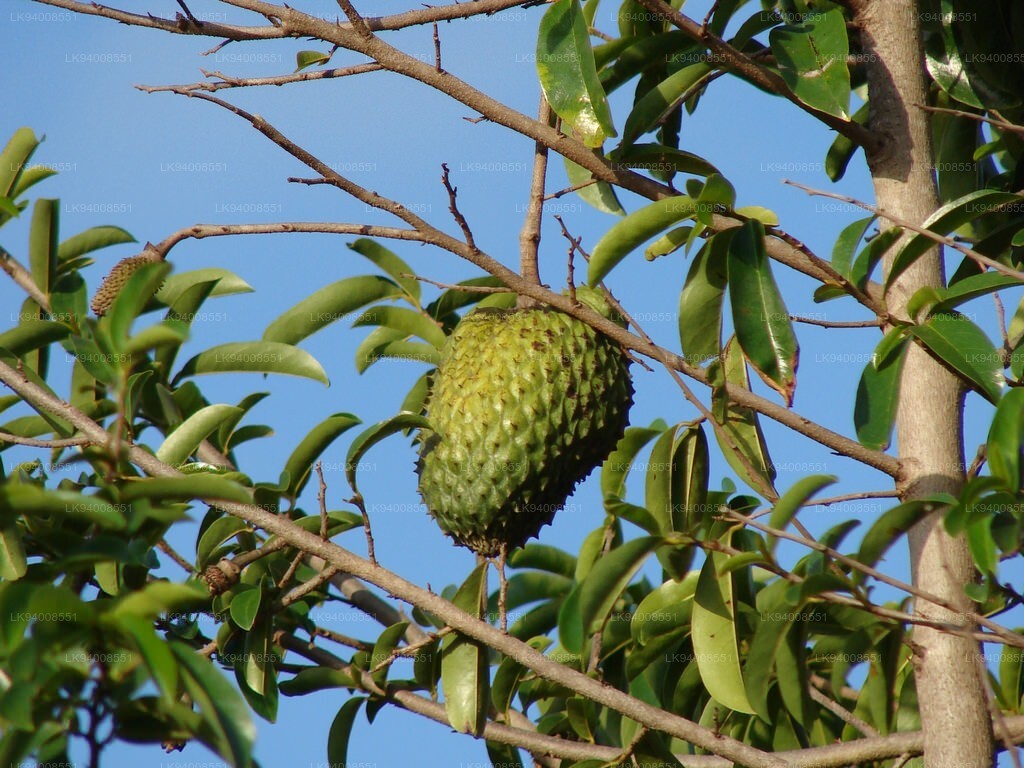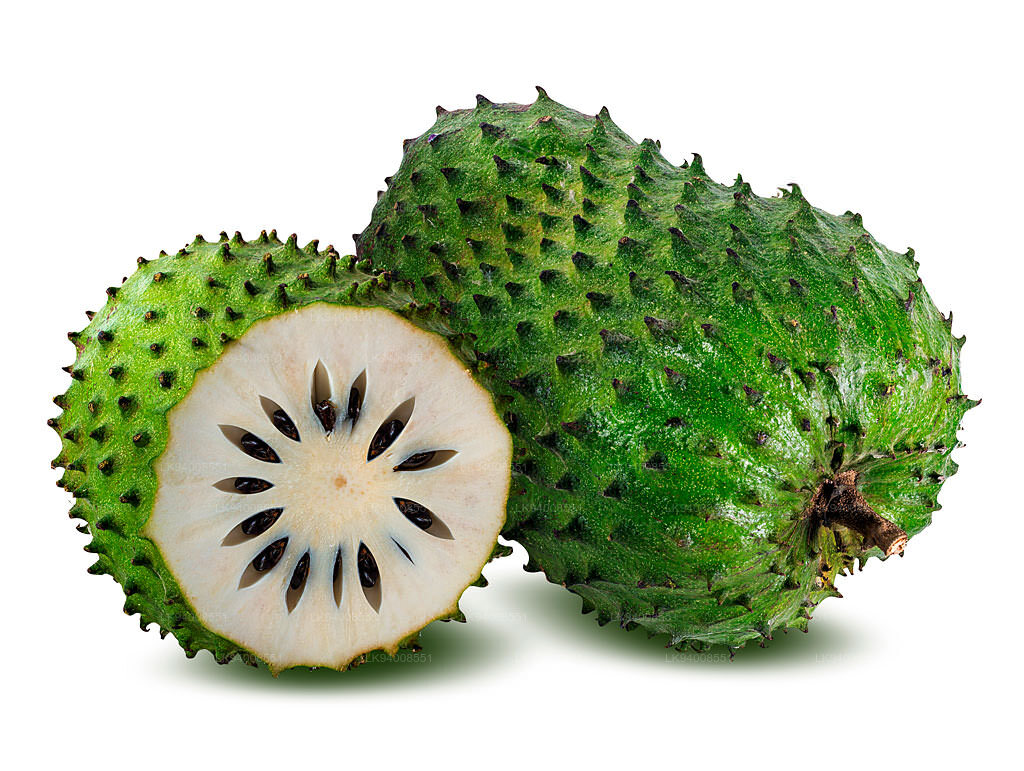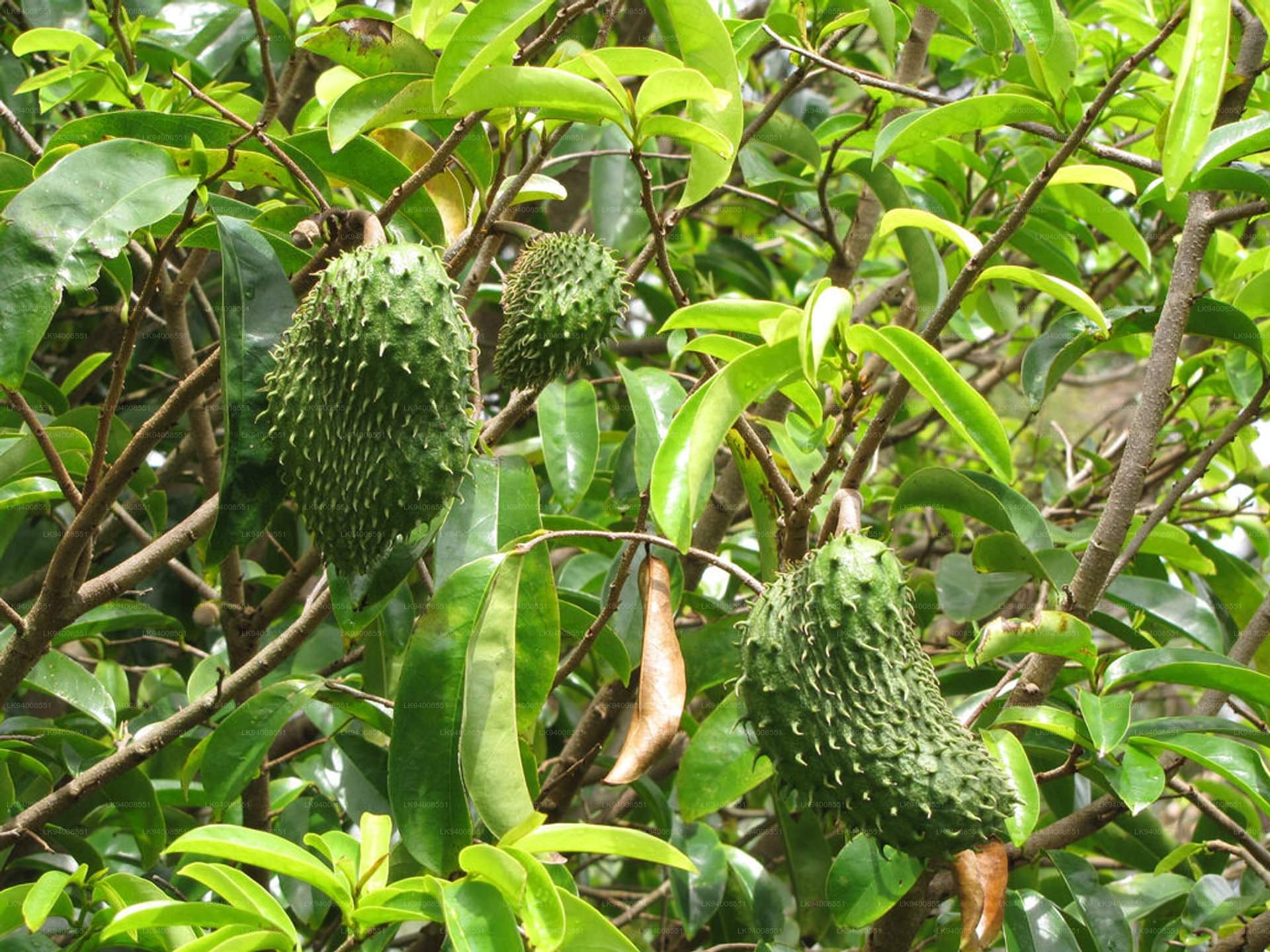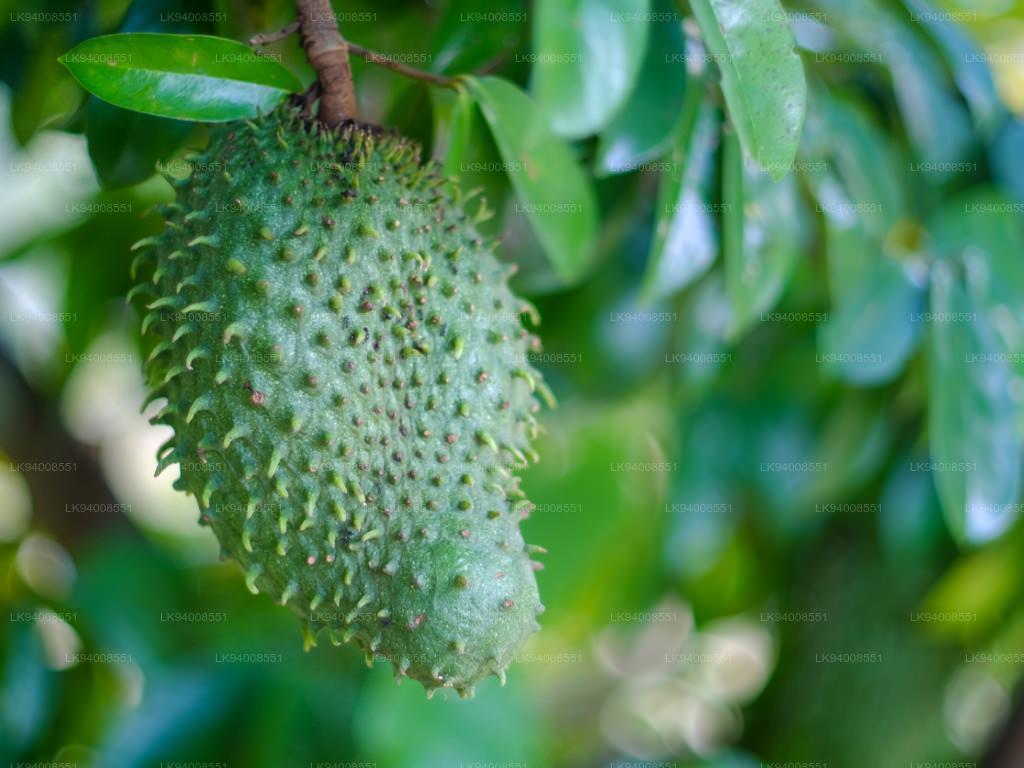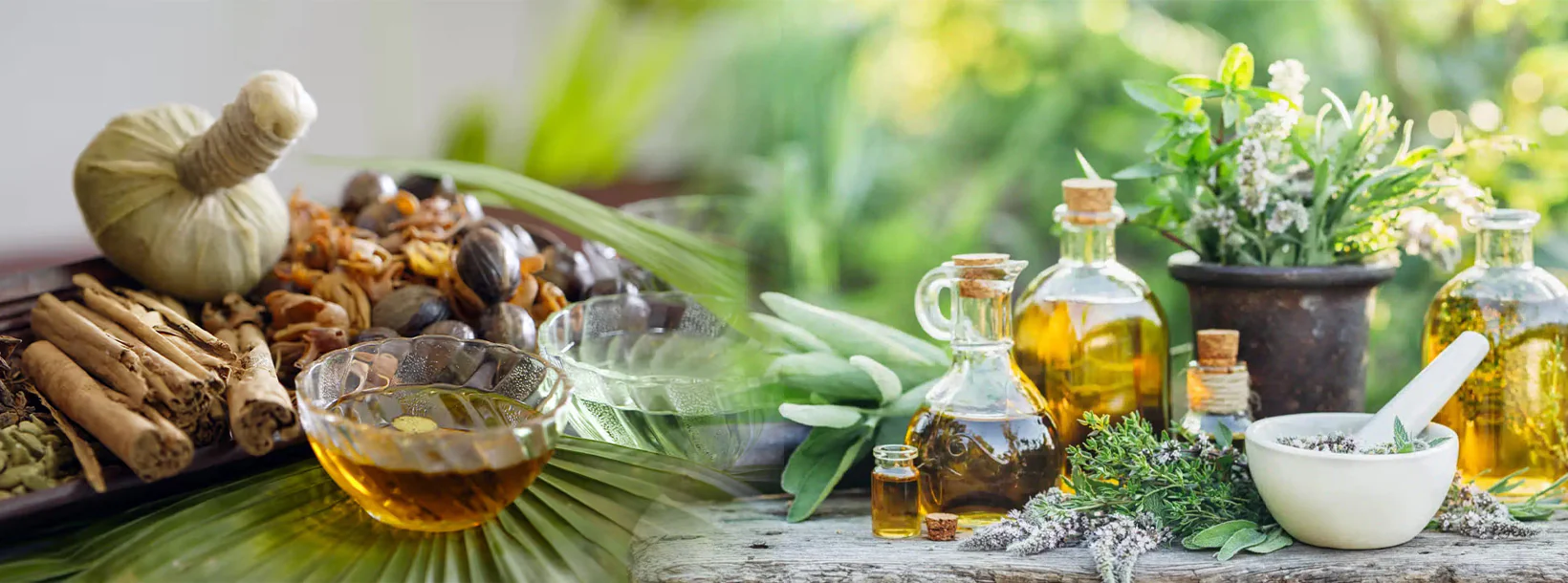
Ayurvedic Medicinal Plants
Sri Lanka's Ayurvedic tradition features a rich variety of medicinal plants used for centuries. Sri Lanka has a rich tradition of Ayurvedic medicine, drawing on its indigenous knowledge and a variety of medicinal plants. Here are some notable Ayurvedic medicinal plants found in Sri Lanka:
Annona muricata (Soursop; කටු අනෝදා)
A native of the warm and tropical regions of the Americas, soursop is a fruit that goes by many names. Its scientific name is Annona muricata, but it also goes by guanabana, paw-paw, sirsak, and graviola.
Soursop is a member of the Annonaceae family, also known as the custard apple family. The fruits, which grow on trees, are large and oval-shaped. The green exterior, which has spines on it, covers a white, fibrous flesh. They grow up to 8 inches and can weigh up to 10 pounds. Soursop’s flavor can best be described a cross between mango and pineapple.
Soursop has many uses in traditional medicine, and it has been used to treat a wide range of health conditions and ailments. With its strong nutrient profile, it provides a variety of health benefits.
Health Benefits
Soursop is high in vitamin C, an antioxidant known to boost immune health. The vitamin strengthens your immune system, improving its ability to defend against pathogens. It also promotes the destruction of free radicals, which can help to protect your skin and cells from environmental oxidative damage. One whole soursop fruit contains 215% of your recommended daily allowance of vitamin C. Soursop (the fruit and the leaves) contains many other antioxidants, including phytosterols, tannins, and flavonoids. Antioxidants play a role in your overall health and may help to protect against a variety of health conditions.
Other health benefits of soursop include:
Healthy digestion
One whole soursop fruit contains around 83% of your recommended daily allowance of fiber, which is a vital nutrient for your digestive health. Fiber helps to promote regularity and prevent digestive issues such as constipation.
Potential anti-carcinogenic effects
While most research is limited to test-tube studies, soursop may be beneficial in helping to fight and prevent cancer. One study found that a soursop extract could reduce the size of breast cancer tumors and kill cancer cells. A second study found that an extract could stop the formation of leukemia cells.
Fights inflammation
Antioxidants fight free radicals, reducing the damage to your cells caused by oxidative stress. One of the side effects of oxidative stress is inflammation. The antioxidants in soursop may, therefore, help to reduce inflammation in the body.
Stabilizes blood pressure
High blood pressure may lead to serious issues like heart disease and heart attack. A contributing factor to high blood pressure is sodium intake. Potassium helps your body to get rid of sodium and eases the tension in the walls of your blood vessels, both of which can help to lower your blood pressure. A whole soursop fruit offers approximately one-third to one-half of your recommended daily allowance of potassium.
May fight against bacteria
Soursop may provide antibacterial effects. One study found that an extract may be able to kill many different types of bacteria, including strains that cause gum disease and cavities. Another study found that soursop extracts may help to fight cholera and Staphylococcus bacteria. While these were test-tube studies, the results are promising, and further research is needed.
-

Ankenda
Acronychia pedunculata -

Beli
Aegle marmelos -

Bakmi
Nauclea orientalis -

Bangwel-geta
Coscinium fenestratum -

Bukinda /Walkinda
Tinospora malabarica -

Bu- kobbe
Allophylus cobbe -

Dodan –kaha
Memecylon capitellatum -

Diyamitta
Cissampelos pareira -

Embul dodan
Citrus aurantium -

Gas nidikumba
Biophytun reinward -

Hintambala
Carmona microphylla -

Goraka
Garcinia cambogia -

Karapincha
Murraya koenigii -

Keppetiya
Croton laccifer -

Kohomba
Azadirachta indica -

Kotikan-bevila
Sida alba -

Kudumiris (Forest paper)
Toddlia asiatica -

Kurundu
Cinnamomum zeylanicum -

Mahakaramba
Carissa carandas -

Muna mal
Mimusops elengi -

Nelli
Phyltanthus emblica -

Puwak
Areca catechu -

Rath mal
Ixora coccinea -

Eepatta / Ruk - anguna
Alangium salviifolium -

Siyambala
Tamarindus indica -

Walangasal / Wal-embilla
Embelia ribes -

Wal Karapincha
Micromelum ceylanicum -

Welangiriya
Paramignya monophylla
Ayurvedic and Herbal
-
Siddhalepa Ayurveda Herbal Balm
Preț obișnuit Începând cu 2,00 lei RONPreț obișnuitPreț unitar / pe -
Lakpura Wildcrafted Soursop (Guanabana, Graviola, Guyabano) Dehydrated Leaves Whole
Preț obișnuit Începând cu 14,00 lei RONPreț obișnuitPreț unitar / pe -
Link Swastha Triphala
Preț obișnuit Începând cu 9,00 lei RONPreț obișnuitPreț unitar / pe -
Sethsuwa Pranajeewa Oil
Preț obișnuit Începând cu 15,00 lei RONPreț obișnuitPreț unitar / pe

